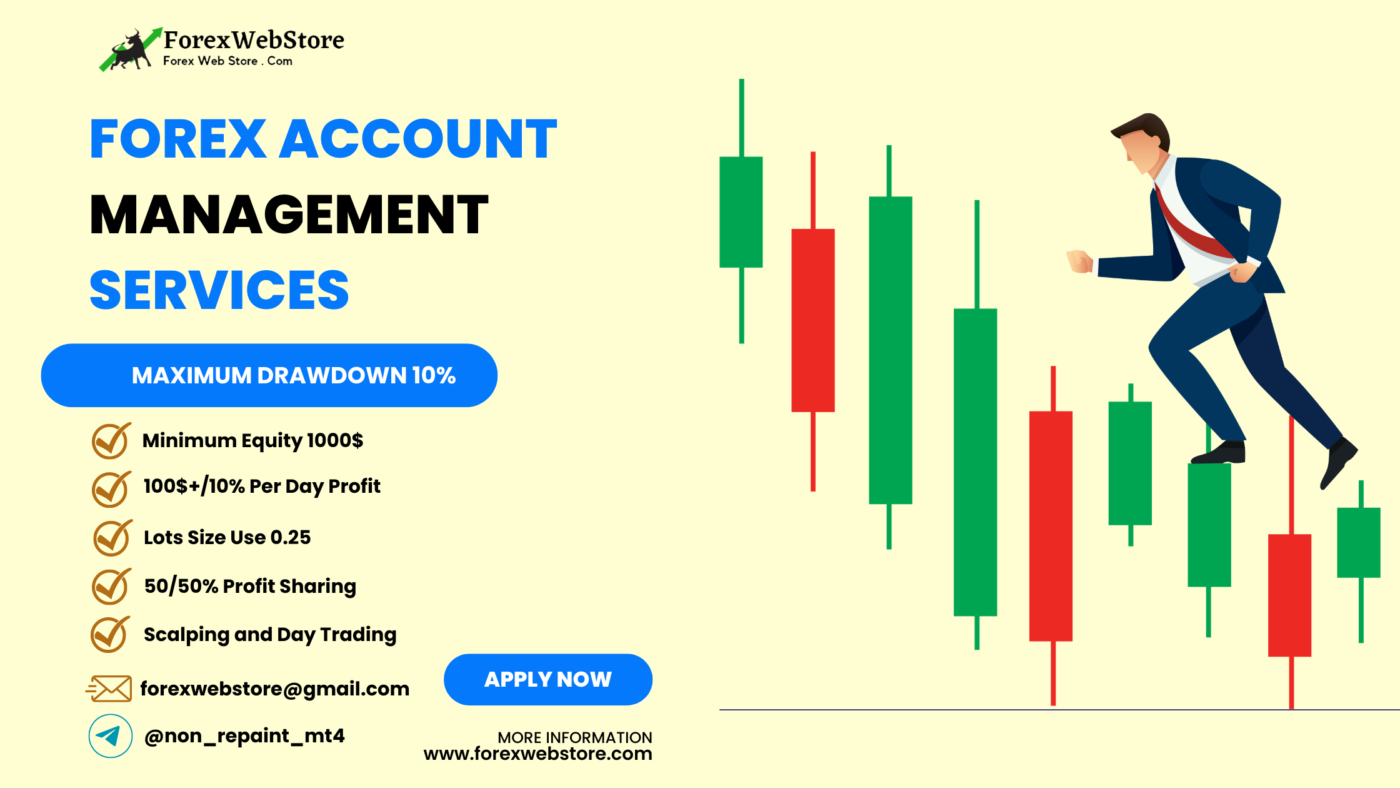The Ultimate Guide to Managing Your Forex Account
Managing a forex account effectively is crucial for any trader looking to succeed in the dynamic world of currency trading. Whether you are a beginner or an experienced trader, understanding the principles of account management will significantly impact your trading performance and financial success. This comprehensive guide will walk you through everything you need to know about managing your forex account, from risk management strategies to emotional discipline.
Understanding Forex Trading
Before delving into account management, it’s essential to grasp the basics of forex trading. The foreign exchange market is the largest financial market globally, where currencies are traded 24 hours a day. Traders speculate on currency pair movements, aiming to profit from fluctuations in exchange rates.
Key Terminology
- Currency Pair: A pair of currencies traded against each other, e.g., EUR/USD.
- Pip: The smallest price move that a currency pair can make, usually the fourth decimal place.
- Leverage: The ability to control a larger position with a smaller amount of capital.
- Margin: The collateral required to open a leveraged position.
- Spread: The difference between the bid and ask price of a currency pair.
The Importance of Forex Account Management
Forex account management involves overseeing your trading activities to ensure sustainable profitability and risk control. Without proper management, even the most skilled traders can suffer significant losses. Effective account management helps you:
- Maintain control over your trading capital.
- Optimize your trading strategies.
- Adapt to changing market conditions.
- Achieve your financial goals.
Creating a Trading Plan
A well-defined trading plan is the foundation of successful forex account management. It should include your trading strategy, risk tolerance, and performance goals.
Components of a Trading Plan
- Goals: Define your short-term and long-term financial objectives. Are you trading for supplemental income, or do you aim to replace your primary income?
- Risk Tolerance: Determine how much risk you are willing to take on each trade. This will help you set your position sizes and stop-loss levels.
- Trading Strategy: Choose a trading style that suits your personality and schedule. Common strategies include day trading, swing trading, and scalping.
- Market Analysis: Decide on the analysis methods you will use. Technical analysis involves reading charts and patterns, while fundamental analysis focuses on economic indicators and news events.
Risk Management Strategies
Effective risk management is crucial to protecting your trading capital. Here are some key strategies to implement:
Position Sizing
Position sizing refers to determining how much of your capital you will allocate to a particular trade. A common rule of thumb is to risk no more than 1-2% of your account balance on a single trade.
- Example: If your account balance is $10,000, risking 1% means you would risk $100 on one trade.
Stop-Loss and Take-Profit Orders
Setting stop-loss and take-profit orders can help you automate your risk management.
- Stop-Loss Order: This order automatically closes your position when it reaches a specified loss level, preventing further losses.
- Take-Profit Order: This order automatically closes your position when it reaches a specified profit level, securing your gains.
Risk-Reward Ratio
The risk-reward ratio is a critical component of any trading strategy. It measures the potential profit of a trade relative to its risk. A common ratio is 1:2, meaning you aim to make $2 for every $1 you risk.
- Calculating Risk-Reward: If you enter a trade at 1.2000 and set a stop-loss at 1.1950 (50 pips risk) and a take-profit at 1.2100 (100 pips reward), your risk-reward ratio is 1:2.
Understanding Leverage and Margin
Leverage allows traders to control larger positions with a smaller amount of capital. While it can amplify gains, it also increases the risk of significant losses.
Choosing the Right Leverage
- Low Leverage: Suitable for conservative traders who prefer lower risk.
- High Leverage: Suitable for experienced traders who can manage higher risk.
Margin Calls
A margin call occurs when your account equity falls below the required margin level. To avoid margin calls, monitor your positions and maintain sufficient capital in your account.
Monitoring Your Trading Performance
Regularly assessing your trading performance is vital for successful account management.
Keeping a Trading Journal
Maintaining a trading journal allows you to document your trades, strategies, and emotions. This can help you identify patterns in your trading behavior and areas for improvement.
- What to Include:
- Trade date and time
- Currency pair traded
- Entry and exit points
- Trade size
- Reason for the trade
- Outcome and emotions
Performance Metrics
Evaluate your trading performance using key metrics:
- Win Rate: The percentage of winning trades compared to total trades.
- Profit Factor: The ratio of gross profit to gross loss.
- Average Win/Loss: The average amount gained on winning trades versus the average loss on losing trades.
Emotional Discipline in Trading
Trading can be an emotional rollercoaster. Emotional discipline is essential for managing your forex account effectively.
Common Emotional Traps
- Fear of Missing Out (FOMO): Avoid entering trades based on emotions rather than analysis.
- Overtrading: Resist the urge to trade frequently. Stick to your trading plan and only trade when your criteria are met.
- Revenge Trading: Avoid trying to recover losses immediately. Take a step back and reassess your strategy.
Techniques for Managing Emotions
- Mindfulness: Practice mindfulness techniques to stay focused and calm during trading.
- Set Limits: Establish daily or weekly loss limits to prevent emotional decision-making.
- Take Breaks: Step away from trading when feeling overwhelmed or stressed.
Utilizing Technology for Account Management
In the digital age, various tools and platforms can enhance your forex account management.
Trading Platforms
Choose a trading platform that offers robust tools for analysis and trade execution. Look for features like:
- Advanced charting tools
- Customizable indicators
- Automated trading options (e.g., Expert Advisors)
Forex Calculators
Utilize forex calculators to help with quick calculations related to pips, margin, and position sizing.
Economic Calendars
Stay informed about upcoming economic events that could impact the forex market. Economic calendars provide essential information on news releases, allowing you to prepare accordingly.
Adapting to Market Conditions
The forex market is constantly evolving. Adapting your strategies and account management techniques to changing market conditions is crucial for long-term success.
Staying Informed
- Market News: Regularly check financial news and analysis to stay informed about market trends.
- Economic Indicators: Understand key economic indicators that impact currency values, such as interest rates and employment figures.
Flexibility in Strategy
Be prepared to adjust your trading strategy based on market conditions. If volatility increases, consider modifying your position sizes or using wider stop-loss levels.
The Role of Continuous Education
The forex market is dynamic, and continuous learning is vital for successful account management.
Resources for Learning
- Online Courses: Enroll in online courses that cover advanced trading strategies and risk management.
- Books and Articles: Read books and articles by experienced traders to gain insights into their techniques.
- Webinars: Attend webinars hosted by trading experts to stay updated on market trends and strategies.
Networking with Other Traders
Join trading communities or forums to connect with other traders. Sharing experiences and strategies can provide valuable insights and enhance your trading skills.
Conclusion
Mastering forex account management is essential for any trader seeking success in the forex market. By implementing effective strategies, maintaining emotional discipline, and continuously educating yourself, you can optimize your trading performance and work towards achieving your financial goals. Remember, successful trading is not just about making profits; it’s about managing risks and making informed decisions. Stay committed to your trading plan, adapt to market conditions, and keep learning, and you’ll be well on your way to mastering the art of managing your forex account.
Contact Us :-
Telegram:- ForexMasterScalpers
Youtube:- @Forexwebstore
Email:- forexwebstore@gmail.com
Linkdin:- Chat Here
Post Views: 576
 Profit locker v1.75
1 × $70.00
Profit locker v1.75
1 × $70.00 Gold Scalper EA
1 × $329.00
Gold Scalper EA
1 × $329.00 Budak Ubat v1.52 Forex Robot
1 × $110.00
Budak Ubat v1.52 Forex Robot
1 × $110.00
